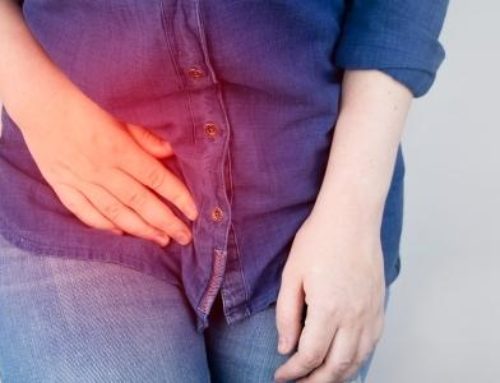
Your gut isn’t happy.
What started as random discomforting symptoms is now becoming more frequent. For the first few days, weeks and even months, you write them off. You start to think about what changes you have made in your life. What may be causing your gut problems, but everything seems to be the same.
No change. Symptoms continue to get worse and worse. Now you have to map out your travel plans every time you leave the house so there is always a toilet nearby. You start removing certain foods out of your diet, thinking that if you do so, symptoms will go away. But they don’t. Finally, you start to share what’s happening to a friend, colleague or family member. Next minute you’re being bombarded with advice about things you should do – go gluten free, don’t eat dairy, avoid sugar like the plague, get a breath test, get a stool sample … Sound familiar?
Confusing, right?
This scenario is more common than you think. You then start a long (and at times expensive) journey. Running tests, removing random foods, but still, no pattern or inkling of what is causing symptoms emerges.
In recent years, the availability of commercial products and tests for IBS has emerged. Unfortunately, some of these tests are not only extremely expensive, but also lack the scientific backing to support claimed effectiveness. But how can you tell the gimmick from the scientifically proven? Simple answer: it’s difficult. Most products are masked by clever marketing and big words. These products are marketed so well, that they even entice the most experienced of us.
Here is a guide to help you through the top 5 alternative investigations of IBS (and their scientific backing) recommended by a quick Google search:
| Alternative Therapies | Use | Evidence? |
|---|---|---|
| Peppermint oil | Reduce abdominal pain. | Mixed evidence. Some studies report participants noticed a reduction in symptoms, while other studies reported no improvement. |
| Artichoke leaf extracts | Reduce bloating and abdominal pain | Mixed evidence. More evidence is needed. |
| Turmeric | Reducing symptoms through reducing inflammation | More evidence is needed |
| Acupuncture and Reflexology | Reduce bloating | Research is still in its infancy. |
| Yoga | Muscle Relaxation | Research is still in its infancy. It is thought yoga helps some individuals with IBS indirectly through stress management. |
As you can see, there are many alternative ways to investigate and target IBS symptoms. While I stopped at the fifth website on Google, there were tons more. The reason to why there are so many recommendations, is remembering back to part 1 of this series – we still don’t know what causes IBS. It presents itself differently from person to person. Meaning, what may work for you, may not work for your friend.
Unlike the investigations above, where little evidence is available, there is solid evidence showing the effectiveness of FODMAPs in reducing symptoms. Even as you read this, FODMAP research is being done! FODMAPs are not for everyone. It’s not a one-fit approach.
So how do you know if considering FODMAPs may benefit you?
Have a chat to your local dietitian. They will help you to identify if FODMAPs is the right path for you, and if not, help you to investigate what is causing your symptoms in a systematic way.
In a nutshell, FODMAP is a fancy acronym which refers to a group of carbohydrates (sugars) found in common foods we eat.
Fermentable
Oligosaccharides (Fructans and Galacto-oligosaccharides)
Disaccharides (lactose)
Monosaccharides (fructose)
Polyols (sorbitol and mannitol)
Not to get too caught up in the nitty gritty details; these sugar molecules are poorly absorbed, causing them to pass through to the large intestine where they’re fermented by bacteria. The process of fermentation causes common symptoms of: bloating, abdominal pain, nausea, constipation and diarrhea.
The Low FODMAP diet is broken up into two main phases:
Phase 1: The general principal is to remove all high FODMAP foods for 4-6weeks. If symptoms disappear or are alleviated, this suggests further investigation. (If not, well at least we know, FODMAPs is not the right path for you!)
Phase 2: Re-introducing high FODMAP foods through challenges. The challenges are designed to identify what foods contribute to your symptoms. Once we have identified foods and in what quantity, then it is up to you whether you avoid them completely, or consume them in smaller amounts.
Simple, right?
Not always. While it sounds simple on paper, it’s not always as straightforward as you think.
Why? Well 1 of 2 reasons:
- If you cut out all high FODMAP foods without further thought to your diet, you can unknowingly miss out on key nutrients including: fibre, calcium, folate and protein (especially if your vegetarian) which can have both immediate and long term effects on health.
- Support. Going on a low FODMAP diet can be difficult. So, it is always good to have someone qualified to support you through this time, offering practical advice, to make this as simple as possible!
Looking for help with your gut issues? Tired of feeling uncomfortable in everyday life? Over feeling restricted in what you can do and where you can go?
References
Grundmann, O., & Yoon, S. L. (2014). Complementary and alternative medicines in irritable bowel syndrome: An integrative view. World Journal of Gastroenterology : WJG, 20(2), 346–362. http://doi.org/10.3748/wjg.v20.i2.346
Haber, S. L., & El-Ibiary, S. Y. (2016). Peppermint oil for treatment of irritable bowel syndrome. American Journal Of Health-System Pharmacy, 73(2), 22-31
Gupta, S. C., Patchva, S., & Aggarwal, B. B. (2013). Therapeutic Roles of Curcumin: Lessons Learned from Clinical Trials. The AAPS Journal, 15(1), 195–218. http://doi.org/10.1208/s12248-012-9432-8



